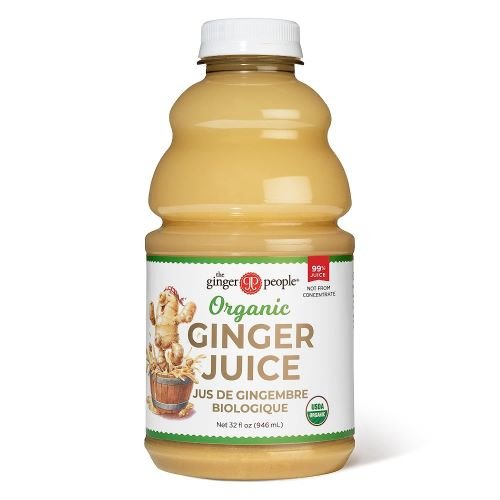9 Best Herbs For Pregnancy And 59 Herbs To Avoid

Navigating through pregnancy can be challenging, with common concerns ranging from managing morning sickness to ensuring optimal nutrition for both you and your baby.
If you’ve found yourself searching for natural ways to support your pregnancy, you’re not alone. Many expect to find safe, effective herbs that can ease various pregnancy-related issues while promoting overall health.
In this article, we’re diving into the world of herbal remedies specifically tailored for pregnancy. You’ll learn about the top nine herbs that are not only safe but beneficial for you and your developing baby.
But that’s not all—we’ll also shed light on the herbs you should avoid to ensure a safe pregnancy journey.
☝️ IMPORTANT: Although what you are about to read is fact checked (check the numbers in brackets), we are not doctors. If you have any concerns it is better to consult your gynecologist as well.
Best herbs for pregnancy
Certain herbs can be incredibly beneficial for your health and well-being during pregnancy.
For example, Red Raspberry Leaf, Ginger, Peppermint, Nettle Leaf, and Dandelion stand out for their supportive properties, from easing morning sickness to enhancing nutrient absorption.
Let’s explore how these natural wonders can positively impact your pregnancy experience.
1. Red Raspberry Leaf (Rubus idaeus)
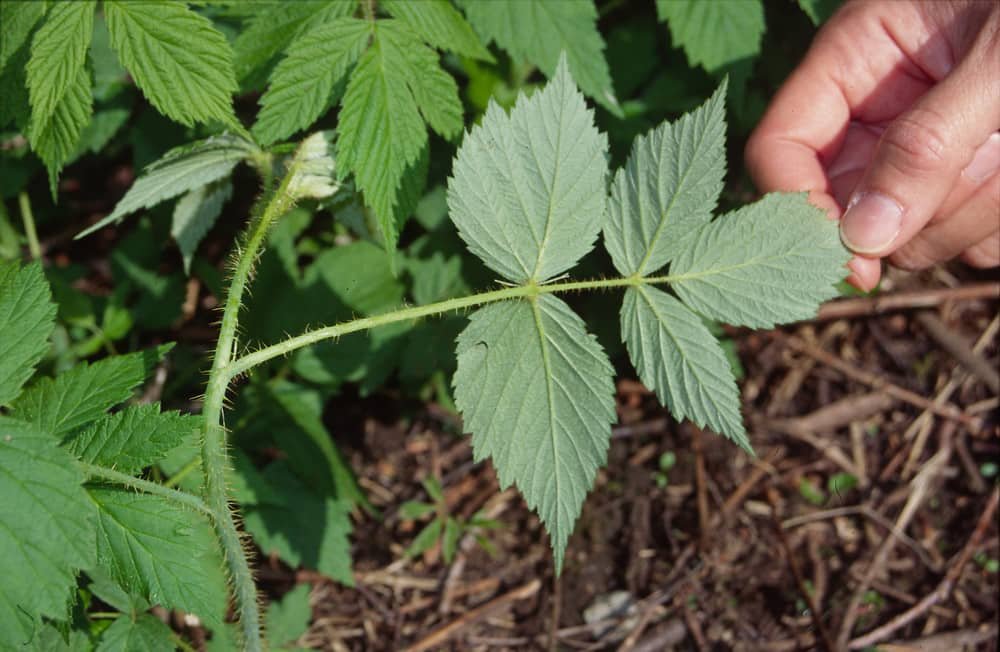
Red Raspberry Leaf is a fantastic herb for pregnant women, especially during the later stages of pregnancy. Drinking it as tea can help make labor pains easier to manage. [1]
This herb isn’t only great for getting your uterus ready for giving birth, but it’s also packed with iron and calcium, which are super important for your baby’s development. [2]
So, to summarize, adding Red Raspberry Leaf to your daily routine during pregnancy can help you deal with labor pains more easily and also help you recover faster after the baby arrives. Plus, it’s good for your health and helps your baby grow strong.
Where To By Red Raspberry Leaf
You can buy Red Raspberry Leaf powder on Amazon. You best option – in my opinion – is the one from Micro Ingredients. It’s organic and pure. It’s just dried red raspberry leaves. Plus, it doesn’t cost an arm and a leg to purchase. I personally trust this brand and I feel confident recommending it.
2. Ginger (Zingiber officinale)
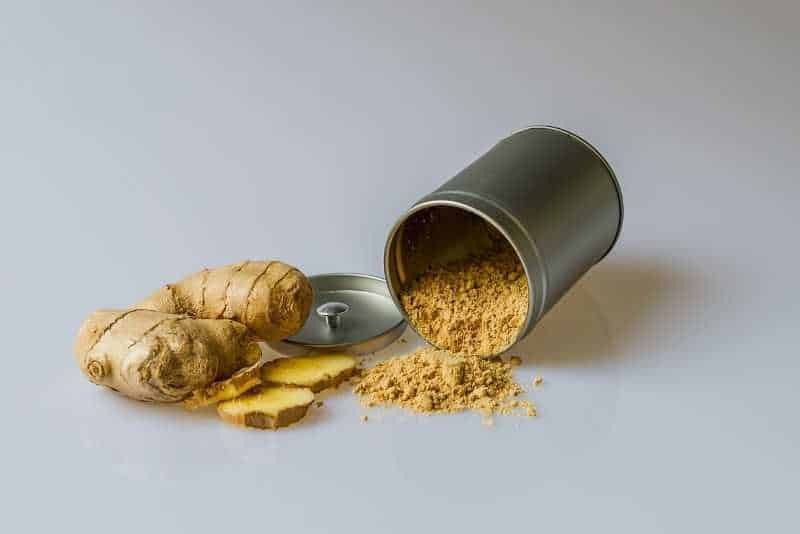
Many pregnant women find ginger, or Zingiber officinale, really helpful for dealing with morning sickness and nausea. [3]
This natural remedy is known for making the stomach feel better and has been a popular choice for easing discomfort in the early months of pregnancy.
Besides helping with nausea, ginger is great for improving digestion and getting rid of heartburn, which are common problems for expecting moms. [4]
It’s a preferred natural option for many pregnant women because it’s gentle and effective.
Where To Buy Ginger
You can find ginger almost everywhere. Your local grocery store and online. You can also consume it’s extract (it’s super concentrated so read the instructions carefully) or in a juice form.
3. Peppermint (Mentha piperita)
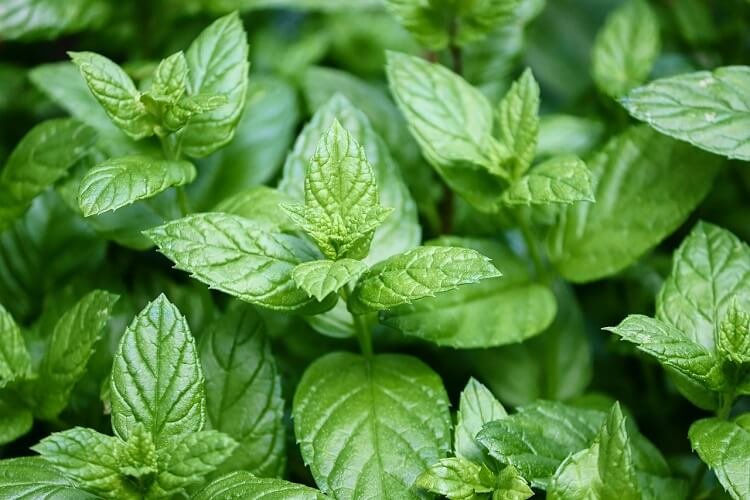
Just like how ginger helps with morning sickness, peppermint (Mentha piperita) is great for easing “tummy troubles” during pregnancy.
Its cool smell and calming effect make it perfect for when you’re dealing with gas, bloating, and indigestion.
Peppermint really knows how to make your stomach feel better, making it a great choice for those times you’re feeling off. But peppermint does more than just help with digestion; it also helps a lot with headaches and migraines, which can happen a lot when you’re pregnant.
Because it’s safe and works in different ways, peppermint is a really good herb to think about using when pregnancy is making you feel uncomfortable, helping you get through your day with less trouble.
Where To Buy Peppermint
You can buy peppermint online from Amazon. Specifically, I suggest Anthony’s Organic Peppermint Leaves. They’re made from Non GMO crops, they’re non-irradiated and organic. Don’t worry though, they cost less than $15 per 1lb pouch – which is great deal for an organic batch.
4. Nettle Leaf (Urtica dioica)
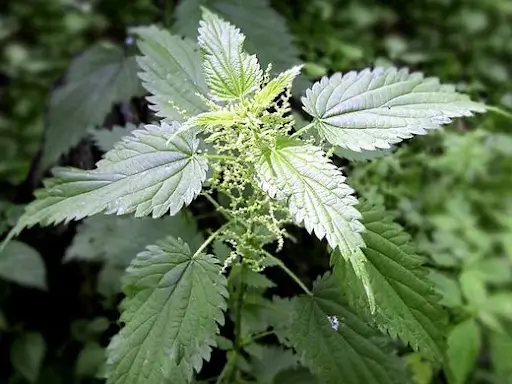
Nettle leaf is a great herb for pregnant women because it’s full of important nutrients like iron and calcium. [5]
These aren’t the only good things in nettle, as it also has potassium and magnesium, which are very important for a healthy pregnancy.
Nettle is like a super food for pregnant women, full of vitamins and minerals to meet your body’s needs during this special time.
Nettle also helps keep your kidneys and adrenal glands healthy, which is really important when you’re pregnant. [5]
It might even help lower the risk of pre-eclampsia, a condition that can happen to pregnant women. [6]
Adding nettle leaf to your diet while you’re expecting is a smart move to make sure you and your baby get off to a great start.
Where To Buy Nettle Leaf
Again, you can buy Nettle leaf tea on Amazon. IF you are looking for a quick suggestion, this Organic Nettle Leaf tea from Traditional Medicinals is a solid choice. You get 16 tea bags for less than $5.
5. Dandelion (Taraxacum officinale)
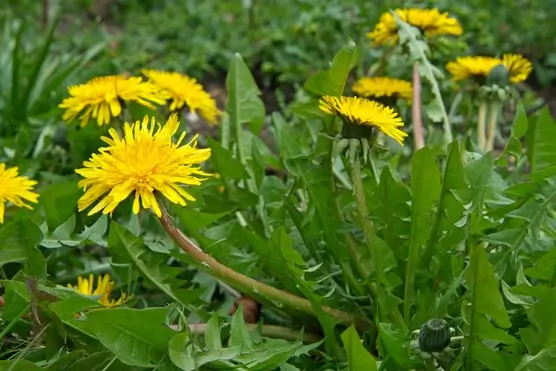
Just like nettle leaf, dandelion is great for pregnant women because it’s full of good stuff like vitamins A and C, calcium, and it can even help with swelling because it makes you pee more.
If you’re trying to stay healthy naturally while you’re expecting, you might want to think about adding dandelion leaves to your meals.
It’s an easy and effective way to take care of yourself, making dandelion a great choice for pregnancy-friendly herbs.
Where To Buy Dandellion
You can buy Dandellion on Amazon. I suggest considering Micro Ingredient’s Sustainably US Grown, Organic Dandelion Root Tea Powder or BULKSUPPLEMENTS’s Dandelion Root Extract Powder.
The first one costs around $30 and you get 1 Pound (16 Ounce, 1 Year Supply) and the latter you’ll get it for around $20 but for 500 Servings (250 Grams – 8.8 oz).
As I mentioned before, I trust Micro Ingredient’s brand more, so, most probably I would go with that one.
6. Chamomile (Matricaria chamomilla L.)

If you’re pregnant and looking for a natural way to relax and sleep better, chamomile tea could be just what you need. Known for its calming effects, chamomile is great for easing anxiety and helping you sleep more soundly.
It can also help with digestion and reduce swelling, making your pregnancy a bit more comfortable. Adding chamomile tea to your daily routine might make a big difference in dealing with pregnancy discomforts as well as depression.
Where To Buy Chamomile
You can find chamomile tea almost everywhere these day. Here’s a quick recommendation: Traditional Medicinals Tea, Organic Chamomile & Lavender, Stress Relief, 16 Tea Bags.
7. Oats Straw (Avena sativa)
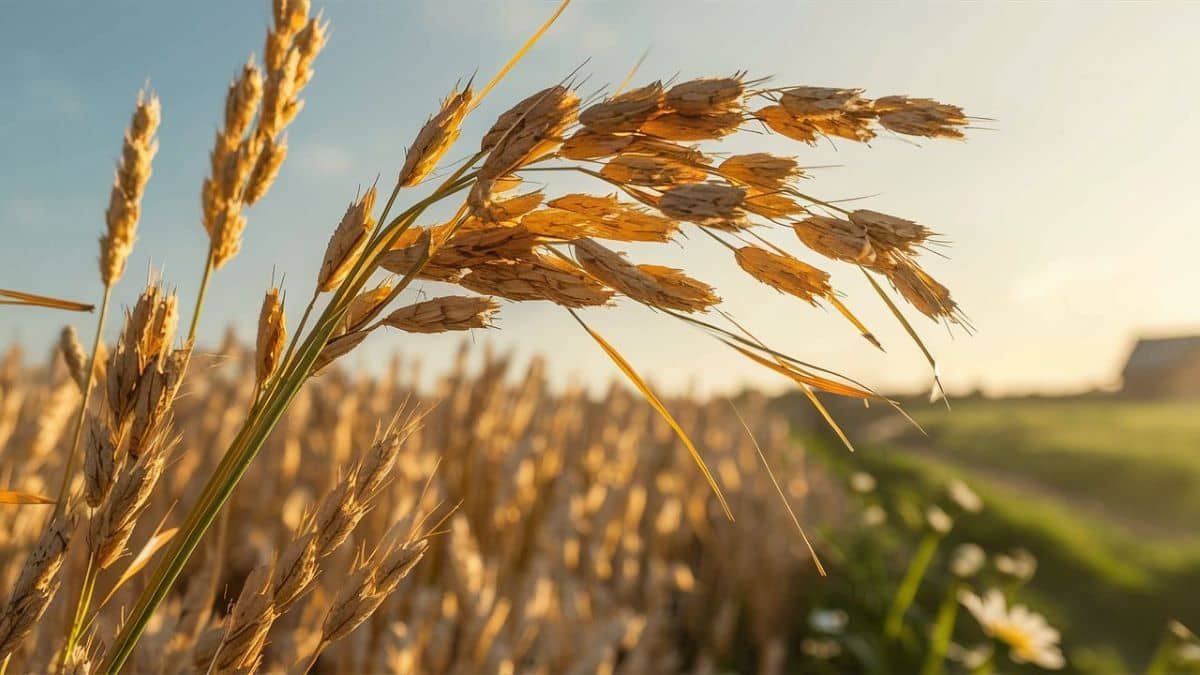
While chamomile is known for its calming effects during pregnancy, oats straw is another fantastic herb that’s full of nutrients such as silica, calcium, magnesium, and iron.
It’s a great pick for reducing anxiety and improving sleep. This herb supports your body in dealing with stress naturally, making you feel more relaxed during the busy months of pregnancy.
Its calming effects aren’t only good for your mind but also help you sleep better. It is believed to have various health benefits, including promoting healthy skin, hair, and nails, supporting bone health, and aiding in digestion
Adding oats straw to your pregnancy care plan might really help with stress and sleep. It’s full of important minerals and offers a soft but effective way to deal with common issues during pregnancy.
Where To Buy Oats Straw
You can buy Oats Straw in powder form from Bulk Supplements or in capsules form from Horbaach. They’re the best Oats straw supplements money can buy.
8. Fennel (Foeniculum vulgare)
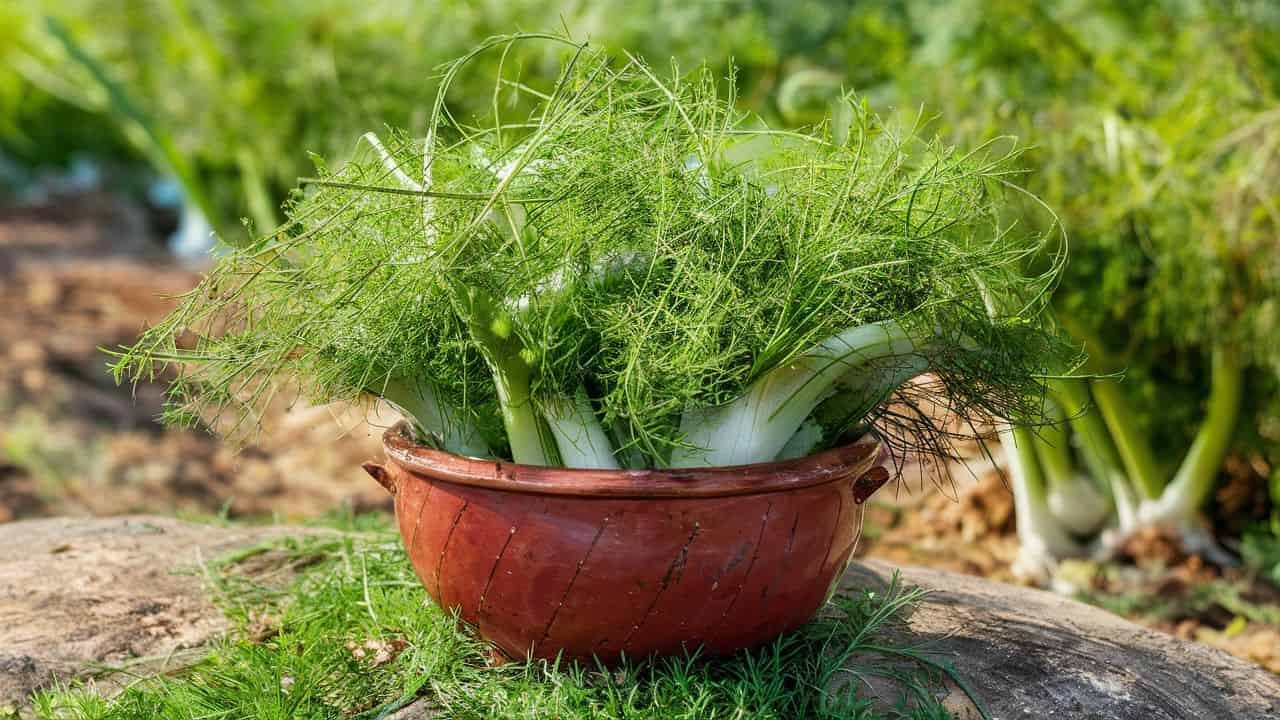
Fennel is a great herb for those expecting a baby. It belongs to the Apiaceae family, which includes other plants like carrots, parsley, and dill (guess what herb is next).
It’s known for calming an upset stomach and helping with digestion. Safe to use during pregnancy, fennel offers a natural way to deal with common tummy troubles.
Fennel seeds are also used as a natural remedy for menstrual cramps and to increase milk production in breastfeeding mothers. [7]
It contains various compounds, including essential oils, flavonoids, and phenolic compounds, which contribute to its medicinal properties.
Research has shown that fennel extracts have antioxidant, anti-inflammatory, and antimicrobial effects. These properties make fennel a potential candidate for the treatment of various diseases and conditions
Adding fennel to your diet means you’re looking after your digestive health in a gentle, yet effective way. It’s especially good for pregnant women who often have to deal with uncomfortable digestive issues.
Where To Buy Fennel
I suggest buying fennel from your local grocery store and add it in your diet. If your local grocery shop does not sell fennel, you can take it as a supplement. I recommend checking: Nature’s Way Fennel Seed 480 mg, 100 VCaps
9. Dill (Anethum graveolens)
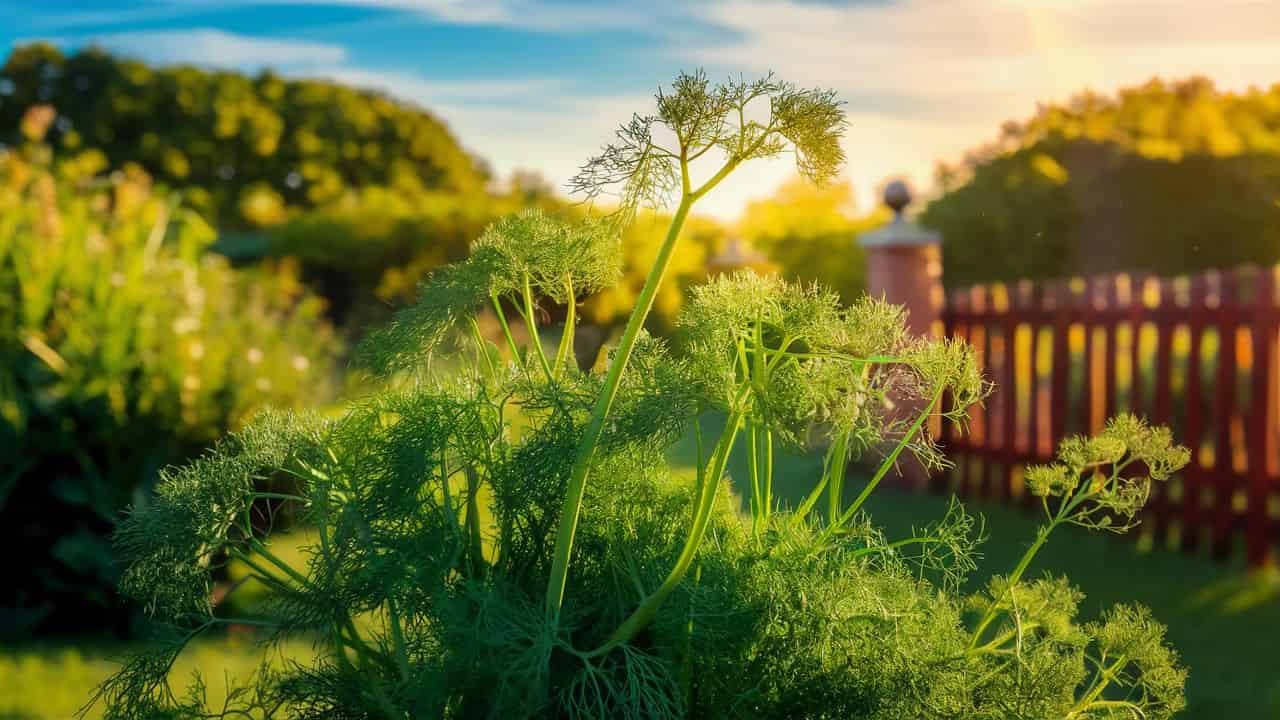
Dill. It’s a great herb to add to your meals. Not only does it make your food taste better, but it’s also full of vitamins and nutrients that are super important for you and your baby during pregnancy.
Adding dill to your dishes is a simple way to get those extra vitamins you both need. It’s totally safe and adds a yummy twist to your cooking. So, next time you’re in the kitchen, why not throw some dill into the mix?
It’s a healthy, tasty way to spice up your pregnancy diet and take good care of you and your little one.
Where To Buy Dill
You can buy Dill seeds and sprangle them in your food, yogurt or oats.
Herbs to avoid during pregnancy
Now, I will not go into much detail for the herbs to avoid during pregnancy, but, you can take this list – compiled by the University of Texas at El Paso – save it and go through it every time you have a question about a herb.
💡 You can bookmark this post and hit Ctrl+f on your browser. Type the herb in question. If it is on this list, avoid it.
| Common Name (Scientific Name) | Form of Use | Why it is not safe |
|---|---|---|
| Yarrow (Achillea millefolium) | Tea | May induce uterine contractions |
| Black cohosh (Actaea racemosa) | Root, Tea, capsules | May induce uterine contractions |
| Maidenhair fern (Adiantum capillus-veneris) | Fronds (leaves), Tea | May induce uterine contractions |
| Aloe vera | Gel and latex | Gel used topically is considered safe. Avoid ingesting whole leaf preparations as they may induce uterine contractions |
| Lady’s mantle (Alchemilla, xanthochlora) | Leaves, Tea, capsules | May induce uterine contractions |
| Angelica (Angelica archangelica) | Root, Tea, capsules | May induce uterine contractions |
| Dong Quai (Angelica sinensis) | Root, Tea, capsules | May induce uterine contractions |
| Roman chamomile (Anthemis nobilis) | Flowers, Tea, capsules | May induce uterine contractions |
| Wormwood (Artemisia spp.) | Leaves and stems, Tea | Various species of wormwood contain potentially neurotoxic ingredient known as thujone |
| Shepherd’s purse (Capsella bursa-pastoris) | Leaves, stems, and flowers, Tea, tinctures | May induce uterine contractions |
| Cascara sagrada | Tree bark, Tea, capsules | May induce uterine contractions |
| Blue cohosh (Caulophyllum thalictroides) | Root, Tea, capsules | May be toxic to fetus and induce uterine contractions |
| Gotu kola (Centella asiatica) | Steams, leaves, Tea, capsules | May induce uterine contractions |
| Cassia (Cinnamomum cassia) | Tree bark, Tea | Occasional use as a condiment considered safe. Taken as tea may induce uterine contractions |
| Ergot (Claviceps purpurea) | Fungus (sclerotium), Grows in various species of infected cereal grains | May induce uterine contractions |
| Cinnamon (Cinnamomum verum) | Tree bark, Tea | Occasional use as a condiment considered safe. Taken as tea may induce uterine contractions |
| Estramonio (Datura spp) | Planta entera, Tea | Various species of Datura are toxic and hallucinogenic. Avoid use |
| Wild yam (Dioscorea villosa) | Root and rhizomes, Tea, tinctures, capsules | Uterine stimulant |
| Male fern (Dryopteris filix-mas) | Root, Tea, extracts, pills | May induce uterine contractions |
| Wormseed (Dysphania spp) | Leaves and stems, Tea | Occasional use as a condiment considered safe. Contains a toxic compound known as ascaridol; may induce uterine contractions. Avoid ingesting oil, as it is neurotoxic |
| Fennel (Foeniculum vulgare) | Seeds, root, leaves, Tea, pills, capsules, essential oil | High doses should be avoided, as they may induce uterine contractions |
| Devil’s claw (Harpagophytum procumbens) | Root, Tea, pills, capsules | May induce uterine contractions |
| Hops (Humulus lupulus) | Fruits, Tea, pills, capsules | May induce uterine contractions |
| Golden Seal (Hydrastis canadensis) | Root, Tea, pills, capsules | May induce uterine contractions |
| St. John´s Wort (Hypericum perforatum) | Flowers, Steams, Tea, pills, capsules | May induce uterine contractions |
| Juniper berry (Juniperus spp.) | Berry, Tea | May induce uterine contractions |
| Motherwort (Leonorus cardiaca) | Stem, leaves, and flowers, Tea, tinctures, syrups | May induce uterine contractions |
| Bugleweed (Lycopus virginicus) | Stem, leaves, and flowers, Tea, tinctures | May induce uterine contractions |
| German chamomile (Matricaria recutita) | Flowers, Tea, capsules, Enema | May induce uterine contractions |
| Pennyroyal (Mentha pulegium) | Leaves, Steams, and Flowers, Tea, Essential oil | Essential oil should not be used internally; abortifacient and liver toxic |
| Zoapatle (Montanoa tomentosa) | Leaves and stems, Tea | May induce uterine contractions |
| Tobacco (Nicotiana tabacum) | Leaves, Smoked, chewed | Castor oil used as laxative may stimulate uterine contractions. The seeds are very poisonous |
| Basil (Ocimum basilicum) | Leaves and stems, Tea, essential oil | Safe as a condiment. Avoid essential oil during pregnancy |
| Oregano (Origanum spp) | Leaves and stems, Tea, essential oil | Occasional use as a condiment considered safe. Taken as tea may induce uterine contractions. Avoid topical use of essential oil during pregnancy; avoid ingestion of essential oil |
| Korean ginseng (Panax ginseng) | Root, Tea, capsules | Safety for use during pregnancy not established |
| American ginseng (Panax quinquefolius) | Root, Tea, capsules | Safety for use during pregnancy not established |
| Passion flower (Passiflora incarnata) | Flowers, Tea, capsules | May induce uterine contractions |
| Yohimbe (Pausinystalia yohimbe) | Tree Bark, Tea, capsules | May induce uterine contractions |
| Boldo (Peumus boldus) | Leaves, Tea | Contains a toxic compound known as ascaridol and a hypnotic alkaloid, boldine |
| Kava kava (Piper methysticum) | Rhizomes, root, Liquid extracts, capsules | Safety for use during pregnancy not established |
| Buckthorn (Rhamnus purshiana) | Corteza, Tea, capsules | May induce uterine contractions |
| Rhubarb (Rheum spp) | Root, Tea, capsules | May induce uterine contractions |
| Castor oil (Ricinus communis) | Seeds, Oil | Castor oil used as laxative may stimulate uterine contractions. The seeds are very poisonous |
| Rosemary (Rosmarinus officinalis) | Steams and leaves, Tea, essential oil | Occasional use as a condiment considered safe. Taken as tea may induce uterine contractions. Avoid topical use of essential oil during pregnancy; avoid ingestion of essential oil |
| Rue (Ruta graveolens) | Leaves and stems, Tea | Toxic internally, may induce uterine contractions |
| Saw palmetto (Serenoa repens) | Berrys, Pills, capsules | Bark may induce uterine contractions. Unripe berries are toxic |
| Comfrey (Symphytum officinale) | Planta entera, Tea, capsules | Avoid prolonged use internally; can be liver toxic |
| Pau d´ arco (Tabebuia spp) | Flowers, Arbol, Corteza, Tea, capsules | May induce uterine contractions |
| Feverfew (Tanacetum vulgare) | Flowers, Steams, Tea, capsules | May induce uterine contractions |
| Trébol (Trifolium pratense) | Flowers, Steams, Tea, capsules | May induce uterine contractions |
| Fenugreek (Trigonella foenum-graecum) | leaves, Semillas, Tea, capsules | May induce uterine contractions |
| Damiana (Turnera diffusa) | Flowers, Steams, Tea, capsules | May induce uterine contractions |
| Cat´s claw (Uncaria tomentosa) | Liana, Tea, capsules | May induce uterine contractions |
| Corn smut (Ustilago maydis) | Fungus, Food | Safety for ingestion during pregnancy not established. Avoid especially during the first trimester of pregnancy |
Final Words
Navigating the world of herbs during pregnancy can be a breeze with the right knowledge. Opt for pregnancy-safe herbs like ginger and peppermint to ease discomforts, and steer clear of risky ones like clary sage and saw palmetto.
Remember, it’s always best to consult your healthcare provider before adding any new herbs to your routine. Armed with these insights, you’re all set to embrace a healthier, more comfortable pregnancy journey.
Stay informed and stay safe!
Read Next


